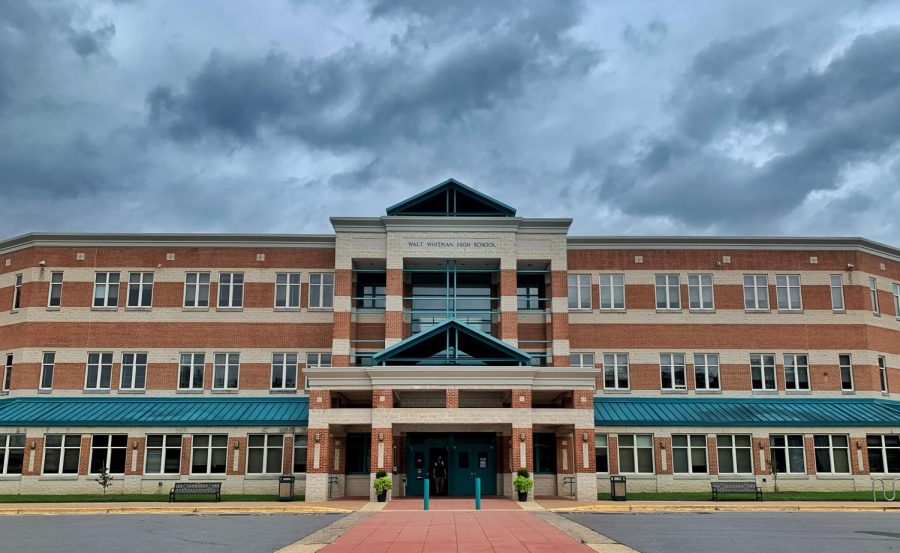Whitman students: Stay optimistic about hybrid learning
Going into school with an optimistic mindset can improve everyone’s experiences.
April 12, 2021
When I tell my friends that I plan on returning to in-person learning this spring, they question me. To them, I’m sacrificing extra sleep just to go sit in a building with a mask on.
In-person learning will be drastically different from years past, making students hesitant about returning. Even among those who have elected to return, there is a widespread sentiment of negativity towards the decision. Many who go back to school in-person will be watching their teacher teach on Zoom from another room. Lunch will no longer be an opportunity to socialize or visit teachers for extra help, and during off periods, administration will confine students to “grade alike spaces.”
“A lot of people are negative about the implementation of the return to school,” junior Pascal Bell said. “I know a lot of juniors who don’t like the fact that they have to wake up early.”
But the general pessimism surrounding the return to school should change. Being in-person will not be perfect, but administration, teachers and the county as a whole are all trying their best in this difficult situation. For us to successfully transition to in-person school, students must be positive, optimistic and cooperative.
As is the case with any early experiment, things are bound to not pan out as planned. Maybe the WiFi will fail, maybe the Chromebooks will lose charge, maybe the hallways will be chaotic and difficult to social distance in.
But if we stay positive, propose solutions and avoid complaining about every little mishap, administration will work with teachers and students to fix these problems. Complaining and general negativity will not address issues with new systems; in fact, it will simply serve to worsen the situation by creating an apathetic learning environment.
“It’s important to stay positive because it’s very hard for MCPS to coordinate a return for dozens of schools,” Bell said.
A valid concern about the return to in-person school is the risk of contracting COVID-19, a prospect which has plagued the minds of students since last March. But with students and staff required to wear masks and social distance, the chance of any individual student contracting the virus at school is fairly low.
There is also a vast difference between valid concerns and nagging negativity. Telling all your friends that you hate the fact that juniors don’t have any parking spaces won’t change anything, but talking to administrators about exploring opportunities for improved safety policies or classes outdoors has the potential to improve hybrid learning.
Brainstorming ideas with your teachers about how to keep students both in class and at home engaged in the same Zoom is imperative if we want to maximize the content we learn and the quality in which we learn it. Instead of just pointing out problems and whining about them, provide suggestions as to how we can avoid or solve them.
The point of this article is not to encourage students to return to school. Every student is in a different situation. For some, staying online makes more sense, whether for academic or personal reasons, but those who are returning must be optimistic if we want to make the best of what little time we will have in the building this year, and remain optimistic going into the next school year.
It excites many students that, after a full year of school over Zoom, we will be able to see our teachers and friends in person again. It excites teachers that they are finally able to teach real humans, instead of black boxes. There is no need to ruin a long-awaited moment by being Oscar the Grouch.










